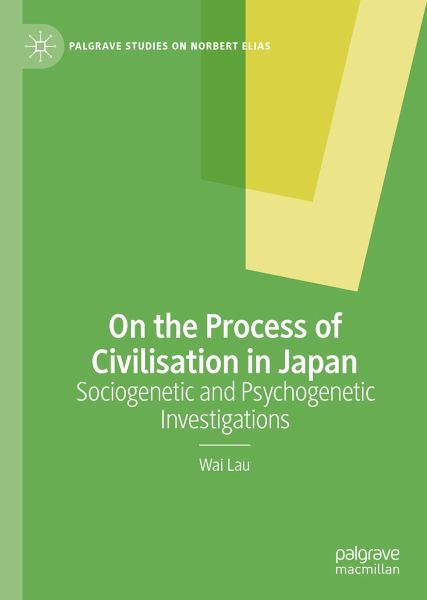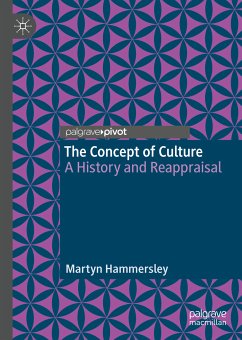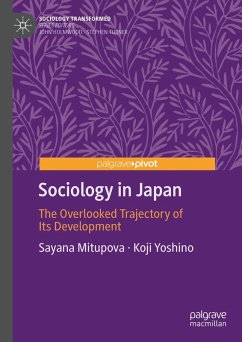
On the Process of Civilisation in Japan (eBook, PDF)
Sociogenetic and Psychogenetic Investigations
Versandkostenfrei!
Sofort per Download lieferbar
104,95 €
inkl. MwSt.
Weitere Ausgaben:

PAYBACK Punkte
52 °P sammeln!
Winner of the Norbert Elias Book Prize 2023This book charts the process of civilisation in Japan. Using the theory of civilising processes developed by Norbert Elias, the author examines the complex underlying structural and psychological processes from the seventh century to the twentieth century. Furthermore, by drawing on rich historical data, the author illustrates how these complex processes led the Japanese to see themselves as 'more civilised' than their forebears and neighbouring countries. Although the theory serves as an important reference point, the author draws on other works to a...
Winner of the Norbert Elias Book Prize 2023
This book charts the process of civilisation in Japan. Using the theory of civilising processes developed by Norbert Elias, the author examines the complex underlying structural and psychological processes from the seventh century to the twentieth century. Furthermore, by drawing on rich historical data, the author illustrates how these complex processes led the Japanese to see themselves as 'more civilised' than their forebears and neighbouring countries. Although the theory serves as an important reference point, the author draws on other works to address different complex questions surrounding Japanese development. Therefore, this book presents three key themes: first, it gives an alternative understanding of the complex developments of Japanese society; second, it intercedes into an ongoing debate about the applicability of Elias's theory in a non-Western context; and third, it expands Elias's theory.
This book charts the process of civilisation in Japan. Using the theory of civilising processes developed by Norbert Elias, the author examines the complex underlying structural and psychological processes from the seventh century to the twentieth century. Furthermore, by drawing on rich historical data, the author illustrates how these complex processes led the Japanese to see themselves as 'more civilised' than their forebears and neighbouring countries. Although the theory serves as an important reference point, the author draws on other works to address different complex questions surrounding Japanese development. Therefore, this book presents three key themes: first, it gives an alternative understanding of the complex developments of Japanese society; second, it intercedes into an ongoing debate about the applicability of Elias's theory in a non-Western context; and third, it expands Elias's theory.
Dieser Download kann aus rechtlichen Gründen nur mit Rechnungsadresse in A, B, BG, CY, CZ, D, DK, EW, E, FIN, F, GR, HR, H, IRL, I, LT, L, LR, M, NL, PL, P, R, S, SLO, SK ausgeliefert werden.












